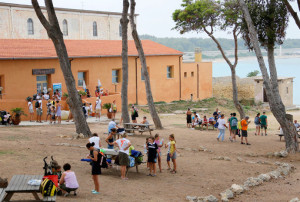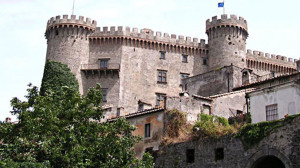Cash-for-Castles: Italy Sells Off Historic Sites to Plug Budget Holes
EUROPE, 14 Oct 2013
Russia Today – TRANSCEND Media Service
A Grand Inquisitor’s villa, a Pope’s fort and a Venetian island will be sold off to fill Italy’s depleted state coffers, local media reports. It’s hoped the 50 historic sites will raise 500 million euros needed to obey strict EU austerity rules.
The plan to offer some of Italy’s state-owned real estate to private investors is part of an emergency decree aimed at keeping the country’s 2013 budget deficit within 3 percent threshold set by Brussels, the Corriere della Serra newspaper reports.
Apart from receiving direct revenue from the sell-offs, Prime Minister Enrico Letta’s government is hoping the castles and villas will be converted into hotels, restaurants and museums, creating much-needed jobs for the country’s struggling economy.
Greece, another European country under tough EU-imposed austerity rules, last year also enacted a similar sell-off, offering some if its islands, beaches and ski resorts to private buyers. Italy sold off several lighthouses on the island of Sardinia last year.

Tourists rest outside a hotel managed by the San Giacomo cooperative, on the Italian island of Pianosa on August 7, 2012.(AFP Photo / Fabio Muzzi)
The properties chosen for the new sale will be marketed through a state-run fund. Among them is the Orsini Castle near Rome, which was built for Pope Nicholas III in the 1270s. It was used as a prison between the mid-19th century and 1989, and according to local superstition is believed to be haunted.
Another national treasure to be offered is Villa Mirabello near Milan, built in the 18th century by Cardinal Durini, the Grand Inquisitor of Malta.
In a Venice lagoon, investors can buy the Island of San Giacomo. A home for monks since the 11th century, it was converted into a military base in the 1800s, but was abandoned in 1961 and left to crumble into ruins.
The scheme makes business sense, Italy-based property expert Rupert Fawcett told the newspaper.
“The reality is that any government in Europe is looking to raise funds where they can,” he said. “The cost of running these properties can be huge and the sheer upkeep of them can be unmanageable.”
DISCLAIMER: The statements, views and opinions expressed in pieces republished here are solely those of the authors and do not necessarily represent those of TMS. In accordance with title 17 U.S.C. section 107, this material is distributed without profit to those who have expressed a prior interest in receiving the included information for research and educational purposes. TMS has no affiliation whatsoever with the originator of this article nor is TMS endorsed or sponsored by the originator. “GO TO ORIGINAL” links are provided as a convenience to our readers and allow for verification of authenticity. However, as originating pages are often updated by their originating host sites, the versions posted may not match the versions our readers view when clicking the “GO TO ORIGINAL” links. This site contains copyrighted material the use of which has not always been specifically authorized by the copyright owner. We are making such material available in our efforts to advance understanding of environmental, political, human rights, economic, democracy, scientific, and social justice issues, etc. We believe this constitutes a ‘fair use’ of any such copyrighted material as provided for in section 107 of the US Copyright Law. In accordance with Title 17 U.S.C. Section 107, the material on this site is distributed without profit to those who have expressed a prior interest in receiving the included information for research and educational purposes. For more information go to: http://www.law.cornell.edu/uscode/17/107.shtml. If you wish to use copyrighted material from this site for purposes of your own that go beyond ‘fair use’, you must obtain permission from the copyright owner.
